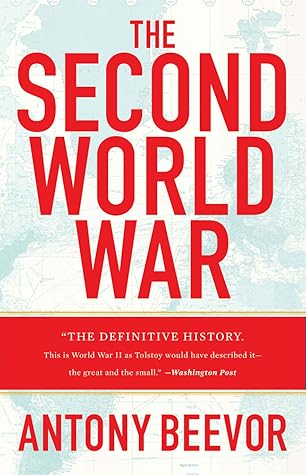More on this book
Community
Kindle Notes & Highlights
In an attempt to eliminate Polish culture and destroy a future leadership, schools and universities were closed. Only the most basic education would be permitted, sufficient only for a helot class. The professors and staff at Kraków University were deported in November to Sachsenhausen concentration camp. Polish political prisoners were sent to a former cavalry barracks at Owicim, which was renamed Auschwitz.
After several more postponements, partly due to the Norwegian campaign and partly, in the last few days, to unfavourable weather forecasts, the German invasion in the west was finally set. Friday, 10 May was to be ‘X-Day’.
The French had suffered 92,000 killed and 200,000 wounded. Nearly two million men were rounded up as prisoners of war. The French army, divided against itself, partly through Communist and extreme right-wing propaganda, had handed Germany an easy victory, to say nothing of large quantities of motor transport, which would be used the following year in the invasion of the Soviet Union.
The more far-sighted sensed that this world war, with the United States, the British Empire and the Soviet Union aligned against them, would be unwinnable. The repulse before Moscow combined with the American entry into the war made December 1941 the geo-political turning point. From that moment, Germany became incapable of winning the Second World War outright, even though it still retained the power to inflict appalling damage and death.
but as a traumatized Vasily Grossman observed after describing the horrors of Treblinka: ‘It is the writer’s duty to tell this terrible truth, and it is the civilian duty of the reader to learn it.’
For the defenders of Stalingrad, there is no earth on the other side of the Volga.’
‘I often think of the words of Nekrasov that the Russian people are able to bear everything that God is able to throw at us,’ wrote one soldier. ‘Here in the army one can easily imagine that there is no force on earth which can do away with our Russian strength.’
On 24 July, the Fascist Grand Council met in Rome. Criticism was guarded to begin with, and Mussolini failed to appreciate what was happening. In great pain, he appeared to be apathetic, almost paralysed. The meeting carried on through the night. After ten hours Count Dino Grandi, the pre-war ambassador to London, introduced a motion for a return to a constitutional monarchy and a democratic parliament. Mussolini’s failure to react convinced some that he was simply looking for a way out. Grandi’s motion was carried by nineteen votes to seven. Next day Mussolini, having forgotten to shave, went
...more
It was not long before the full horrors of the Nazi regime became apparent. On 4 April American troops entered Ohrdruf concentration camp, part of Buchenwald, to find apathetic, skeletal figures surrounded by unburied corpses. Eisenhower was so appalled that he ordered soldiers to visit the camp, and brought in war correspondents to witness the sight. Some of the guards had tried to disguise themselves, but when they were pointed out by prisoners Allied troops shot them on the spot. Other guards had already been killed by prisoners, but few had the strength.


